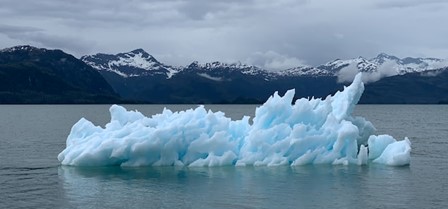Keith Hovan is a healthcare executive with both clinical and administrative leadership experience. In the article below Keith Hovan discusses the impacts of our ever-changing climate, and the effect global warming has on our overall health.
A recent article by The Harvard Gazette put a striking human face on the impact of climate change.
A student shared her story of living as a Hoopa Valley Tribe member and relying on natural resources. That way of living is close to vanishing, says Keith Hovan.
Global warming has ravished the tribe’s food and water supplies. Dwindling resources means that some of the tribes sources of income such as making jewelry and baskets is becoming more challenging.
The overall way of life for those living on the Hoopa Valley Indian Reservation is under attack, and it is affecting the overall physical and mental health of the tribe including its children who are also experiencing stress explains Keith Hovan.
This is just one of several personal global warming reports shared by the Gazette that showcase how climate change is not just a global environmental crisis, but a deepening human health crisis.
Health Consequences
The warning is as true today as it was several decades ago.
Earlier this month, a federal government report did not mince words about climate change’s far-reaching repercussions.
Keith Hovan explains that the warming of the planet is having a devastating effect on everything from safe drinking water and the vitality of farmland to employment and housing security.
Global warming is nothing less than a threat to everything Americans value the most.
The complex reverberation echoing through human health is often a background character. New research is enlightening and terrifying.
This year, a study found that 58% of the 375 pathogenic diseases impacting the world’s population have been worsened by hazards linked to the emission of greenhouse gases.
The majority of scientists agree that the rise in the Earth’s atmospheric temperature is at least in part responsible for a sharp increase in massively destructive weather events, including fires, flooding, tornadoes, and hurricanes.
Climatic changes are estimated to be responsible for over one-third of heat-related deaths over the past 30 years.
Warmer temperatures are affecting human health in innumerable ways. Ticks carrying diseases that kill humans, such as Rocky Mounted spotted fever, are not dying off as they normally would during traditionally colder seasons according to Keith Hovan.
Heat-related algae blooms in the world’s water are killing aquatic life and eliminating safe water sources.
 Health on the Line
Health on the Line
Because of this, too much water means not enough safe water to drink.
As the government’s report outlines, heavy flooding and rainfall events lead to a saltwater invasion of aquifers and a spreading of toxic agricultural nutrients in drinking supplies.
In other cases, drought lowers water levels and severely decreases agricultural production vital for human life.
And Keith Hovan reports that other impacts on human health are just as eye-opening:
• Air Pollution
Ground-level ozone, formed in part by heat and methane emissions and a major ingredient in smog, is linked to an array of health issues, including asthma and a decrease in lung function. Premature deaths have increased in these areas.
• Pollen and Other Allergens
Changing temperatures impact seasonal fluctuations and previous patterns of precipitation. This may affect how much pollen humans are exposed to at any given time, triggering dangerous allergic reactions and worsening respiratory illnesses according to Keith Hovan.
• Food Security
The impact on food security is irrefutable. It threats food quality and production, as well as distribution processes. Crop levels are expected to decline, as is fish and livestock production. Populations that heavily depend on certain foods will see drastic shortages.
• Mental Health
Stress and mental health-related disorders are perhaps the most overlooked consequences global warming. Mental health challenges for individuals worsen or are triggered by natural disasters linked to climate variations.
Suicide rates rise with hot temperatures, which also seem to increase instances of dementia.
Medications used to treat those with schizophrenia and other severe forms of mental illness may hamper the body’s temperature regulation.
Stepping Up
There’s not a single cure-all for global warming’s impact on health. Keith Hovan says that experts recommend everything from reducing carbon dioxide emissions to committing to using renewable energy resources and supporting businesses dedicated to environmental sustainability.
A combination of these steps and many others is essential to combat the litany of health issues tied to a warming planet. Time may be running out.
According to the World Health Organization, the cost of health damage linked to climatic changes will be as high as $4 billion by 2030. And between 2030 and 2050, climate fluctuations are believed to lead to 250,000 deaths every year.






